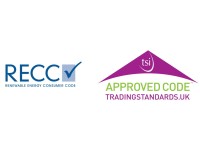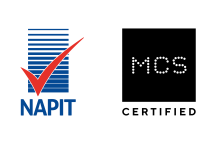AOS Vulnerable Consumer Policy and Procedure
AOS Vulnerable Consumer Policy and Procedure
AOS recognises that some customers we meet will be vulnerable in the context of how we interact with them, by virtue of their personal circumstances. As a provider of Energy Efficient Heating Solutions, we have a duty and obligation to ensure that all elements of our work are consistent with our standard of high-level service that we deliver to our customers and that we make reasonable adjustments and puts in place appropriate additional support mechanisms to take account of these needs and to ensure such customers/members of the public/supporters are not at risk of undue detriment.
Vulnerability is an extremely subjective area, however our staff are constantly on the lookout for potential signs, such as, a lack of understanding, communication issues and unusual or erratic behaviour. Is a person unable to make a specific decision if he cannot understand information about the decision to be made, cannot retain that information in his mind, cannot use or weigh that information as part of the decision-making process, or cannot communicate his decision.
We ensure that our staff have the necessary training, knowledge, understanding and support in order to be able to identify the potential signs of a vulnerable customer in their dealings with them, and then tailor their approach accordingly. Our staff will undergo our induction training where we ensure our staff can identify who is a vulnerable customer and knowing how to provide the appropriate service for these people. Our staff are taught how to alter engagement methods to accommodate the needs of vulnerable customers, this is one of the core principles of our training. Customer facing staff also undertake training through Shermin Finance Ltd and clear financial consultant LTD every 6 months.
A person with mental health problems who is in debt is particularly vulnerable due to their (potential):
- Fluctuations in income or inability to work.
- Unmet housing, care or treatment needs.
- Poor communication skills.
- A relationship breakdown.
- A reliance on benefit income.
- Lack of money management skills.
Assessing a person’s mental health is complex but needs to be recognised in early contact and addressed appropriately. We ask 3 key non-instructive questions if we believe the person to be vulnerable:
- 1. Does your mental health affect your financial situations?
- 2. Does it affect your ability to deal with or communicate with us?
- 3. Does anyone help you to manage your finances such as a family member?
If in any doubt you must ask the customer if there is anyone that the customer usually takes advice from, with regards to maintaining their home or with regards to items of expenditure. If there is then you should ensure that this person is present when you visit the customer. If there is ever a customer that has a person that has power of eatery over them then AOS EESH Ltd will need to see evidence of this in writing.
Any information gathered will be processed in line with GDPR and the Data Protection Act 2018. Where necessary, explicit consent will be obtained from a customer to enable us to process the details of their vulnerability accordingly. Customers will also be fully informed of how we will process this information.
Signs we look out for when identifying vulnerability in customers:
- Do they ask you to speak up or speak more slowly?
>Do they understand what you are saying, or do they miss important bits?
>Do they appear confused about what is being offered?
>Do they ask any unrelated questions?
>Do they keep wandering off the point in the discussion and talk about irrelevant things or things that don’t make sense?
>Do they keep repeating themselves?
>Do they take a long time to answer questions or say that someone else deals with these things for them?
>Do they have a language barrier?
>Do they say they don’t understand their bank statements, a previous phone conversation or recent written correspondence?
Steps we take if we believe a customer may be vulnerable:
- We speak slowly, clearly and explain full.
- We are patient and empathise where appropriate.
- We don’t rush as it may sometimes take the customer time to get relevant information together such as account details.
- We keep on the subject under discussion.
- We do not make assumptions about a customer’s needs.
- We clarify understanding at every point and always ask if there is anything else they would like us to explain.
- We ask the consumer to explain to us what they understand the agreement to be.
- We offer alternative types of communication – phone, post, email, in person.
- We do not make assumptions that the person we are dealing with is sighted as they may be unable to read or understand serial numbers or account numbers.
- We do not make assumptions that the customer we are talking to can hear everything we say as they may have a hearing impairment.
- We always remember that the customer we are speaking to may sometimes be forgetful or overly trusting and believe that a sales representative is always acting in their best interest.
- We understand that some customers may be lonely and welcome the opportunity just to talk to someone.
- We give the customer time to explain their circumstances fully and don’t interrupt or appear impatient.
- We also listen for what is NOT being said, for example, lack of questions about price, lack of commitment, timing of responses, extended silences.
- We always ask if there is a better time to discuss matters as some customers may perform better at different times of the day.
- We ask if there is anyone else the customer may need to talk to before making the decision.
Contracts taken from all customers who may fall into this category must be verified by a manager, over the phone, prior to the representative leaving the customer’s house. It must be remembered that elderly customers can appear very lucid and interested initially but can quickly become confused or distressed. An order must never be taken if there is even the slightest doubt of the customer’s full understanding of the contract and the cost involved.
If we believe that the customer is not fully aware of what they are entering in to then we will:
- Not continue with the sale of any products or services.
- Not continue with any application for credit to fund a purchase.
- Ask if a friend or family member is available to assist the customer, or we will arrange a follow-up appointment when a friend or family member is available.
- Provide the customer with all relevant information in a clear, fair and not misleading manner, allowing them to make an informed decision.
>Not refuse to deal with an individual due to their vulnerability. Instead, we will work with them to ensure they are treated fairly.
>Not label different demographics or individuals as vulnerable without understanding their situation. We accept that no two people are the same and each individual should be handled on a case-by-case basis.
AOS reserves the right to withdraw from a contract at any time if it feels inappropriate to proceed with work due to the vulnerability of the customer.
This procedure must be adhered to at all times in our dealing with customers. Please sign this form below to confirm that you have read and understood the instructions above.
Last updated: August 2023





